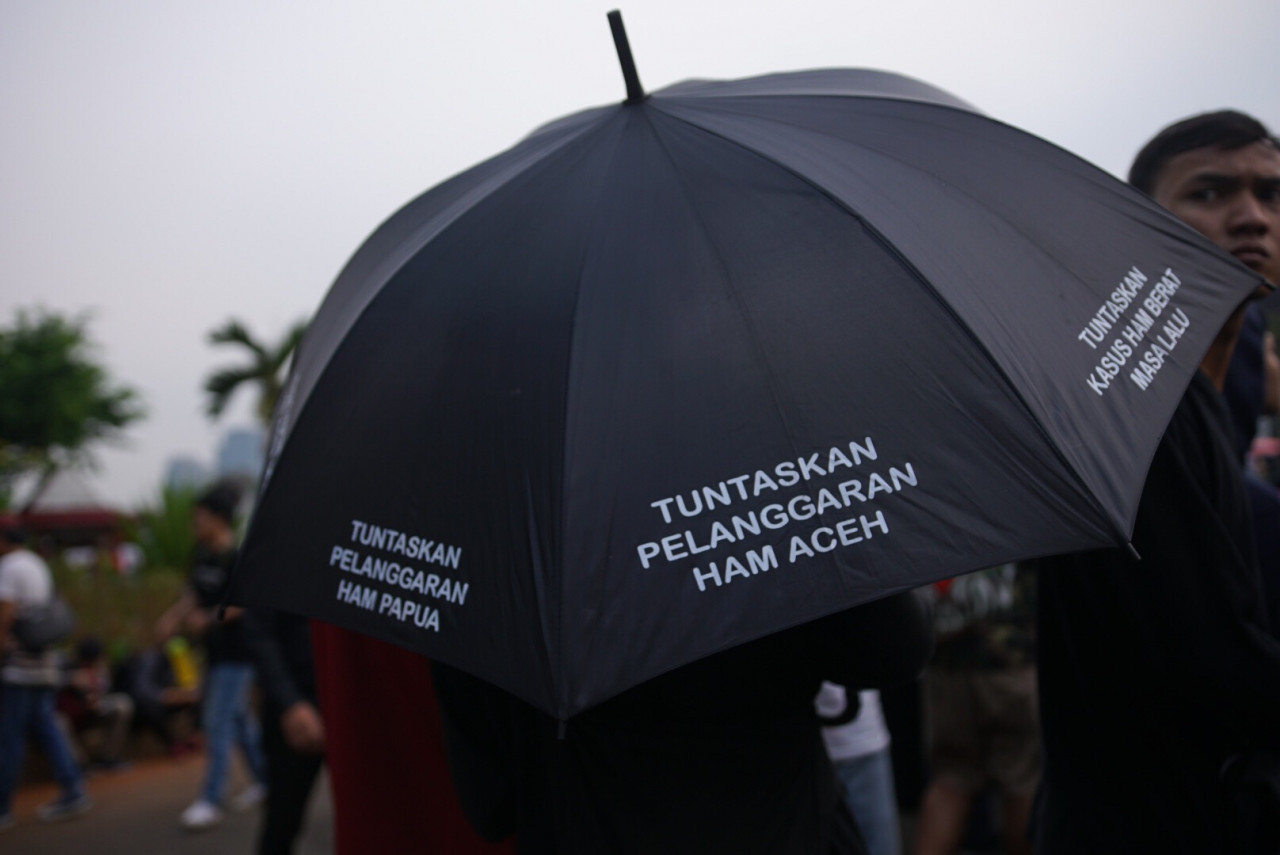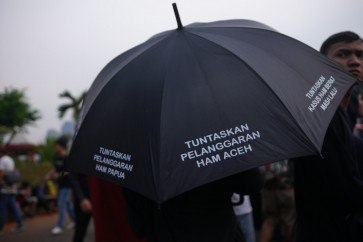Popular Reads
Top Results
Can't find what you're looking for?
View all search resultsPopular Reads
Top Results
Can't find what you're looking for?
View all search resultsAnalysis: Ghosts of victims of human rights violations still haunting Indonesia
Change text size
Gift Premium Articles
to Anyone
T
he government has finally admitted that 12 incidents or tragedies that happened in the past amounted to gross violations of human rights, but short of offering an apology, President Joko “Jokowi” Widodo last week expressed regret and promised restitutions for the victims. This is a startling development for a nation that has been in denial about the many horrible things that have happened in the past. But we can forget about the prosecution of the perpetrators. It is not on the cards.
The oldest and the worst of these cases is the 1965-1966 massacre, an army-led campaign to crush the Indonesian Communist Party (PKI). Until last week, the killings had never been recognized in the official history books. Human rights groups said more than 500,000 PKI members, sympathizers and their family members were slain. Tens of thousands of others were sent to do hard labor on a penitentiary remote island in Maluku.
The decision to recognize the massacre and 11 other past tragedies as gross human rights violations follows the recommendation of a presidential commission created to look at nonjudicial resolutions for the 12 selected cases. Amnesty International Indonesia said the move was not enough and the government must apologize and push for the prosecution of the perpetrators.
Exactly what form the compensation will take is not clear, but President Jokowi has set up a commission comprising 17 government ministries and agencies to work it out.
He also announced a plan to personally meet with the victims, or their relatives, of the tragedies. This includes a meeting in Europe with many who went into exiles in the 1960s to avoid persecution and have lived either as stateless persons or have taken up citizenship in Europe. Part of his plan is inviting them to come home and offering to reinstate their Indonesian citizenship.
This is probably as far as Jokowi could go in fulfilling his 2014 presidential election campaign promise to resolve once and for all the 1965-66 massacre and other human rights atrocities. He faces strong pressures from those with vested interests, including the military, not to give into demands to admit the role of the state in these tragedies for fear of prosecution.
The military, whose fingerprints are visible on almost all these 12 cases, has been unusually quiet about Jokowi’s admission and expression of regret.



















